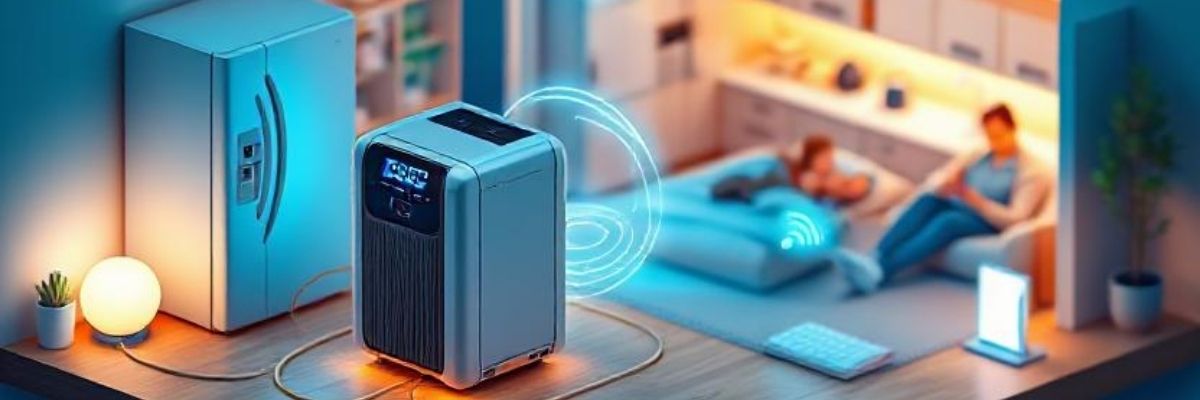
Can a Portable Power Station Run a House?
When the power goes out or you're living off-grid, the big question becomes: Can a portable power station run a house? The short answer? It depends on what you need to power, and for how long. With smart planning and the right gear, a portable power station or battery powered generator can keep your essentials going. In this guide, we’ll break down what these units can handle, how long a power station can run a house, and how to connect a power station to a house safely.
Not sure which power station is right for you?
Take the quiz!
Portable Power Station Limitations for Running a House
Can a Portable Power Station Run a House?
Technically yes—but not all at once. Most portable power stations can't run an entire house continuously, especially if you're trying to power high-wattage appliances. They're best for powering essentials like fridges, modems, lights, and select electronics.
How Long Can a Portable Power Station Run a House?
It depends on capacity and what you’re powering. A 2,000Wh unit could keep your basics running for 6–12 hours. Strategic use—like running one appliance at a time—can help you stretch that runtime. So when someone asks, how long can a power station run a house?, the answer comes down to efficiency and battery size.
Can a Battery Powered Generator Run a House?
Yes, a high-capacity battery powered generator can run essential parts of your home, similar to a power station. They’re silent, emissions-free, and require less maintenance than petrol-powered options, making them a great choice for backup power.

Portable Power Station Setup and Planning for the Home
How to Connect Power Station to House
The safest way is through a manual transfer switch installed by an electrician. This switch isolates your home from the grid and lets you feed power from your station directly into key circuits. For simpler use, plug devices directly into the power station or use extension cords.
Know Your High-Wattage Items
Devices like kettles, dryers, and air conditioners consume loads of power. Use only what’s necessary during an outage.
Monitor Energy Use
Use an energy meter to understand how much power each appliance uses. This helps you size your power station and avoid surprises.
Stagger Appliance Use
Instead of powering everything at once, run essentials in shifts. This avoids overloading and helps batteries last longer.

Choosing the Right Portable Power Station for Your Home
Match Capacity and Budget
What do you really need during an outage? Start with lighting, fridge, phone charging, and medical gear. Estimate watt-hour usage and match that to your station’s specs. Then compare cost vs. value to find a balance between price and performance.
Estimate Runtime
If a device uses 100W and you run it for 5 hours, that’s 500Wh. Tally your list and compare it to your station’s total watt-hour capacity.
Plug-and-Play Benefits
Power stations are easy to use—no noise, fumes, or fuel needed. They’re ideal for renters or occasional users needing reliable short-term backup.

Final Thoughts: Can a Portable Power Station Run Your House?
So, can a portable power station run a house? Yes—at least partially. The key is knowing what you need, how long you need it, and how to use your station smartly. Can a battery powered generator run a house? Yes—for essentials and with the right capacity. Know your limits, manage your power draw, and use proper connection methods. That way, you're not just buying a power station—you're buying peace of mind.


